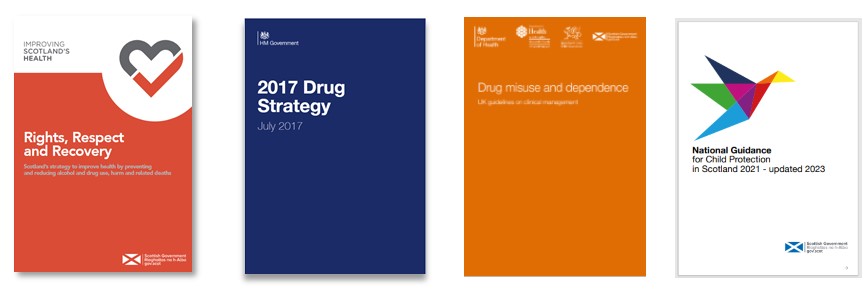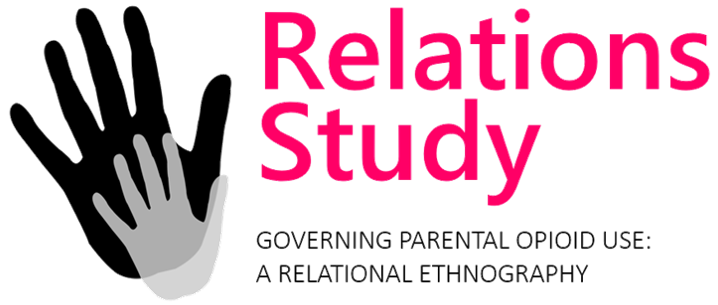Governing parental opioid use: a relational ethnography
WHY IS THIS RESEARCH NEEDED?
Some of the most disadvantaged families in society include children and families affected by drug use. Parents who use drugs are stigmatised and their children frequently end up in the care system. Parents and families do not always receive the right kind of treatment and family support, so these problems can be repeated from one generation to the next.
While the UK has established ways of working with parents who use drugs and their families, little is known about how different policies and approaches operate in practice (within and across different agencies and regions), and how they impact on parents, children and other family members. This study aimed to look at how the whole system works from a family, service provider and policy perspective.
We did this by looking closely at relations between parents, families, professionals, services and policymakers, and how the needs of parents who use drugs and their families were understood, and responded to, within and across different contexts. Our study included sites in both Scotland and England to help us understand similarities and differences in how these complex systems work and their effects on families and services.
WHAT DID THE STUDY INVOLVE?
First, we set up a Learning Alliance to involve members of the public in the study. The Learning Alliance included parents who use drugs, kinship carers and young people affected by parental drug use as well as frontline practitioners, service managers, and policymakers. The Learning Alliance helped the study team to plan the research and to focus on what was important for families and services. The Learning Alliance also considered our emerging findings and made suggestions about what could be done in response to the findings. Find out more about our public engagement work with the Learning Alliance here.
Second, researchers recruited 27 parents from 22 different families into the study (18 mothers and 9 fathers). Twenty-six parents were prescribed opioid substitution therapy (OST) for the treatment of opioid dependence, such as methadone, buprenorphine or dihydrocodeine. Many were also prescribed other drugs and/or reported polydrug use. The researchers interviewed parents and spent time with them to try and find out what day-to-day life is like for parents and their families, including their social networks, sources of support and the nature and extent of their engagement with services. The researchers observed families interacting with service providers and explored how systems of care had an impact on families. To find out more, visit the Ethnography: Families section.
Third, researchers enrolled 10 different health and social care services and 103 professionals into the study, including practitioners, managers, and policymakers from a wide range of health, social work, third sector and government agencies. The researchers interviewed staff and observed what professionals and services do, including different aspects of practice with families, such as interagency and multidisciplinary meetings, parenting interventions, assessments and care planning for families. Researchers explored different models of care and their impact on parents, families, professionals and services. Find out more in the Ethnography: Services section.
Lastly, we examined policies and practice guidance related to the treatment and care of parents who use drugs and their families to see how policies were interpreted and employed across different contexts. The researchers focused on how assumptions and theories in policy affect professional practice and the way parents who use drugs are treated. Learn more in the Policy Analysis section.
WHAT ARE THE BENEFITS OF THE STUDY?
Our study aimed to help a range of people and agencies in different ways. For example:
The findings may benefit parents who use drugs and their families because it will help to show how practices and policies could be improved to better meet their needs. It may benefit professionals, services and policymakers by offering new insights into how systems of care may or may not be benefiting the people they seek to help. Findings could also help academics develop new interventions to help parents who use drugs and their families.
STUDY RESEARCH QUESTIONS:
1. How is ‘the problem’ of parental opioid use constituted?
2. What are the policies and practices governing the problem?
3. How are these enacted locally?
4. What are the impacts on parents/families and professionals/services, do they differ between locations, and in what ways?
5. Are there alternative ways of responding to parental opioid use?
Ethnography: Parents & Families
Ethnography offers a unique way of investigating and understanding the complex dynamics, systems of care and structural factors that shape people’s lives.
Our ethnographic approach was informed by Matthew Desmond’s ‘relational ethnography’, which adopts as its basic object of inquiry, not groups of people, organisations or places, but ‘processes involving configurations of relations among different actors or institutions within a field’.
Our relational ethnographic methods included exploring mechanisms, relational processes, knowledges, actions, networks and trajectories of different actors in the field to better understand certain ways of thinking, behaving and responding to ‘the problem’ of parental drug use.
We observed how parental drug use was represented and understood and how parents who use drugs were governed and self-govern. This involved exploring the day-to-day lives of families, their social context, engagement with practitioners and services, and trajectories over time.
Ethnography: Services & Professionals
The main aim of the ethnography with services and professionals was to examine models of care and everyday professional practice in relation to working with parents who use drugs and their families through participant observation, conversations with staff and focus groups with practitioners/teams.
Our fieldwork focused on relations between different staff and agencies, parents and families as well as how professionals and services in this field were governed and self-govern. This involved exploring the day-to-day practice environment and wider contextual factors affecting care delivery and quality, such as workforce issues, resources, partnerships, commissioning, and policy drivers.
Policy Analysis

The aim of our policy analysis was to examine: how policies represent parents who use drugs and their families?; and what responses or solutions are proposed in policy documents?
Drawing on our ethnographic data, we also explored: how policies were interpreted and employed in practice, and what the effects were on parents, families, professionals and services.
For the purposes of this study, we defined ‘policy’ as any organised attempt to select goals and methods for governmental and/or professional action.
The research team collated a range of relevant policies, clinical guidelines and good practice guidance that was employed in practice, and/or referred to, by parents and professionals who took part in the study. This included documents such as national strategies, local procedures and care pathways, guidance published by professional bodies, departmental or organisational guidelines for practice, practice ‘tools’ (such as assessment and care planning forms), and parent/family information sheets relating to parental drug use.
Our policy analysis focused on specific questions, such as:
1. What assumptions underpin representations of parents who use drugs and their families?
2. What are the effects and limitations of these representations and assumptions?
3. How are these representations produced, defended and/or contested in the field?
4. Are there alternatives, can they be replaced, and what would be the effects?
For some of the findings of our policy analysis focus, see the webinar and expert event presentations.

